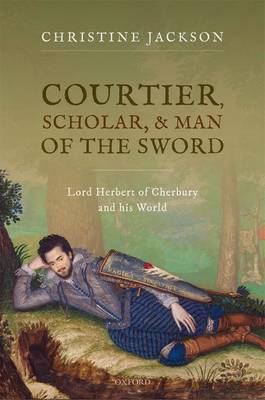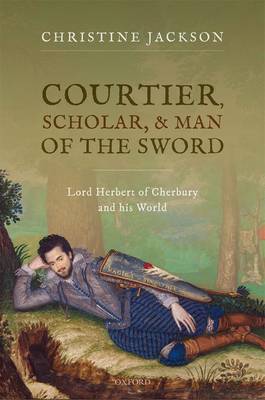
Je cadeautjes zeker op tijd in huis hebben voor de feestdagen? Kom langs in onze winkels en vind het perfecte geschenk!
- Afhalen na 1 uur in een winkel met voorraad
- Gratis thuislevering in België vanaf € 30
- Ruim aanbod met 7 miljoen producten
Je cadeautjes zeker op tijd in huis hebben voor de feestdagen? Kom langs in onze winkels en vind het perfecte geschenk!
- Afhalen na 1 uur in een winkel met voorraad
- Gratis thuislevering in België vanaf € 30
- Ruim aanbod met 7 miljoen producten
Zoeken
Courtier, Scholar, and Man of the Sword
Lord Herbert of Cherbury and His World
Christine Jackson
Hardcover | Engels
€ 217,95
+ 435 punten
Omschrijving
Lord Herbert of Cherbury was a flamboyant Stuart courtier, soldier, and diplomat who acquired a reputation for duelling and extravagance but also numbered among the leading intellectuals of his generation. He travelled widely in Britain and Europe, enjoyed the patronage of princely rulers and their consorts, acquired celebrity as the embodiment of chivalric values, and defended European Protestantism on the battlefield and in diplomatic exchanges. As a scholar and author of De veritate and The Life and Raigne of King Henry the Eighth, he commanded respect in the European Republic of Letters and accumulated a much-admired library. As a courtier, he penned poetry and exchanged verses with John Donne and Ben Jonson, compiled a famous lute-book, wrote a widely-read autobiography, commissioned exquisite portraits by leading court artists, and built an impressive country house. Herbert was an enigmatic Janus figure who cherished the masculine values and martial lifestyle of his ancestors but embraced the Renaissance scholarship and civility of the early modern court and anticipated the intellectual and theological liberalism of the Enlightenment. His life and writings provide a unique window into the aristocratic world and cultural mindset of the early seventeenth century and the outbreak and impact of the Thirty Years War and British Civil Wars. This volume examines his career, life-style, political allegiances, religious beliefs, and scholarship within their British and European contexts, challenges the reputation he has acquired as a dilettante scholar, boastful auto-biographer, royalist turncoat and early deist, and offers a new assessment of his life and achievement.
Specificaties
Betrokkenen
- Auteur(s):
- Uitgeverij:
Inhoud
- Aantal bladzijden:
- 400
- Taal:
- Engels
Eigenschappen
- Productcode (EAN):
- 9780192847225
- Verschijningsdatum:
- 13/03/2022
- Uitvoering:
- Hardcover
- Formaat:
- Genaaid
- Afmetingen:
- 164 mm x 238 mm
- Gewicht:
- 771 g

Alleen bij Standaard Boekhandel
+ 435 punten op je klantenkaart van Standaard Boekhandel
Beoordelingen
We publiceren alleen reviews die voldoen aan de voorwaarden voor reviews. Bekijk onze voorwaarden voor reviews.









